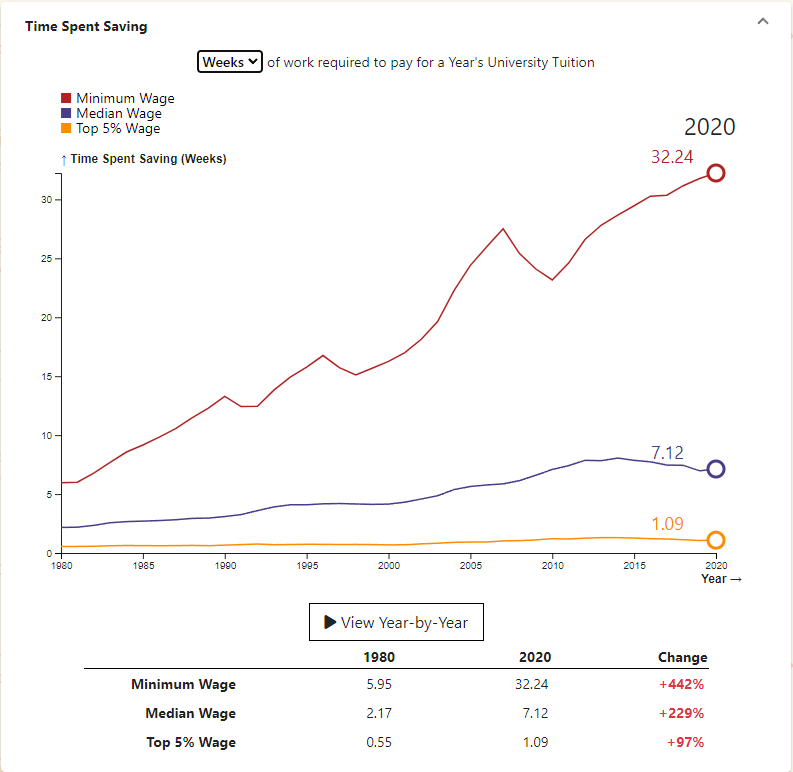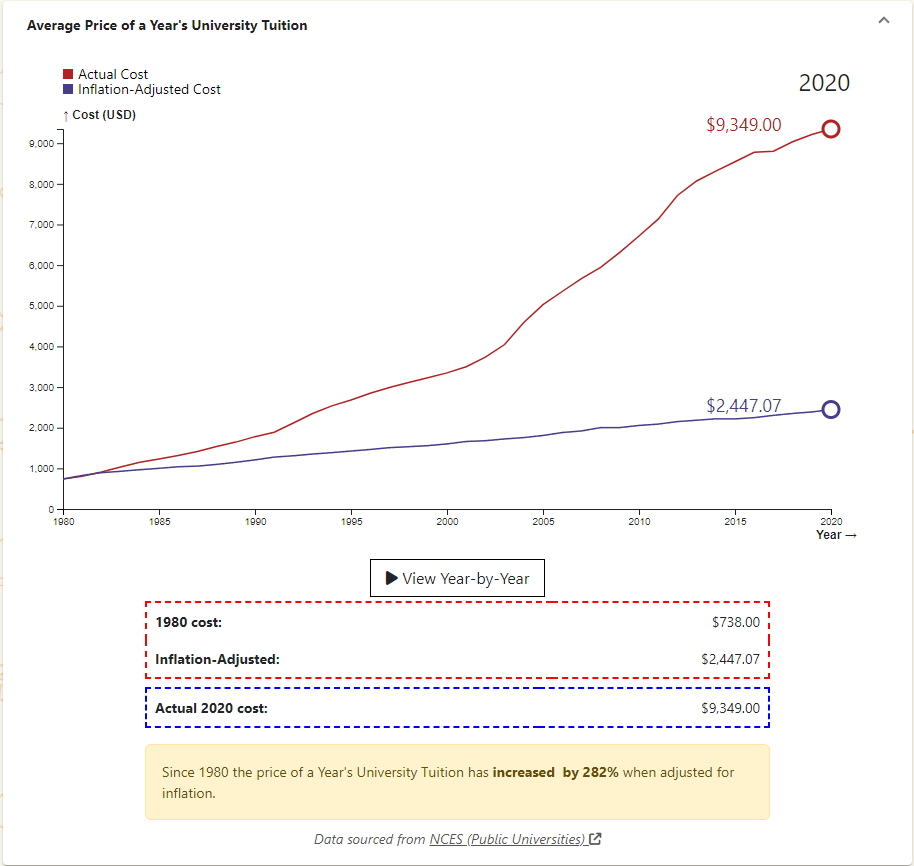
Workers have to work for a longer period of time in order to afford University Tuition than they used to in 1980. The trend is hardest on minimum wage workers who have to work 32.24 weeks of full-time work in 2020 to afford tuition, compared to 5.95 weeks of full-time work in 1980. This ignores taxes and assumes all money earned is put toward tuition.
Since 1980 the price of a Year’s University Tuition has increased by 282% when adjusted for inflation.

Wages have gone up nominally, but not as much when accounting for inflation. The minimum wage has decreased since 1980 after adjusting for inflation.

Sources:
- Median and Top 5% Income: Census.gov (Table H-3)
- Minimum Wage: Department of Labor
- Year’s University Tuition: NCES (Public Universities)
Visualized on boomerchecker.com
Edit:
- Fixed an error when converting Median and Top 5% from annual to weekly. The time to save for those two brackets rose as a result.
- Added wage data for the different wage brackets for reference.

I wouldn’t say that’s the case. Remember that this is for one year. For many careers, you need four years minimum. Then this also doesn’t seem to account for additional costs of living like food and housing you would need while saving.
Yeah and college SHOULD be an investment. We have 8 year car loans, it taking 8 years to pay off 4 years of college wouldn’t be bad. I say this as someone about to go in my junior year of college but I work at a crappy factory which pays for tuition for me after each semester, which is extremely common. And costs of food and housing are separate to tuition, which I’d all the schools are in control of. Also, my food and housing is 95% of my income. If you don’t work for four years then you taking 8 years to pay it off isn’t horrible. The issue is charging interest on a federally backed loan. The government should force these loans to be not for profit.